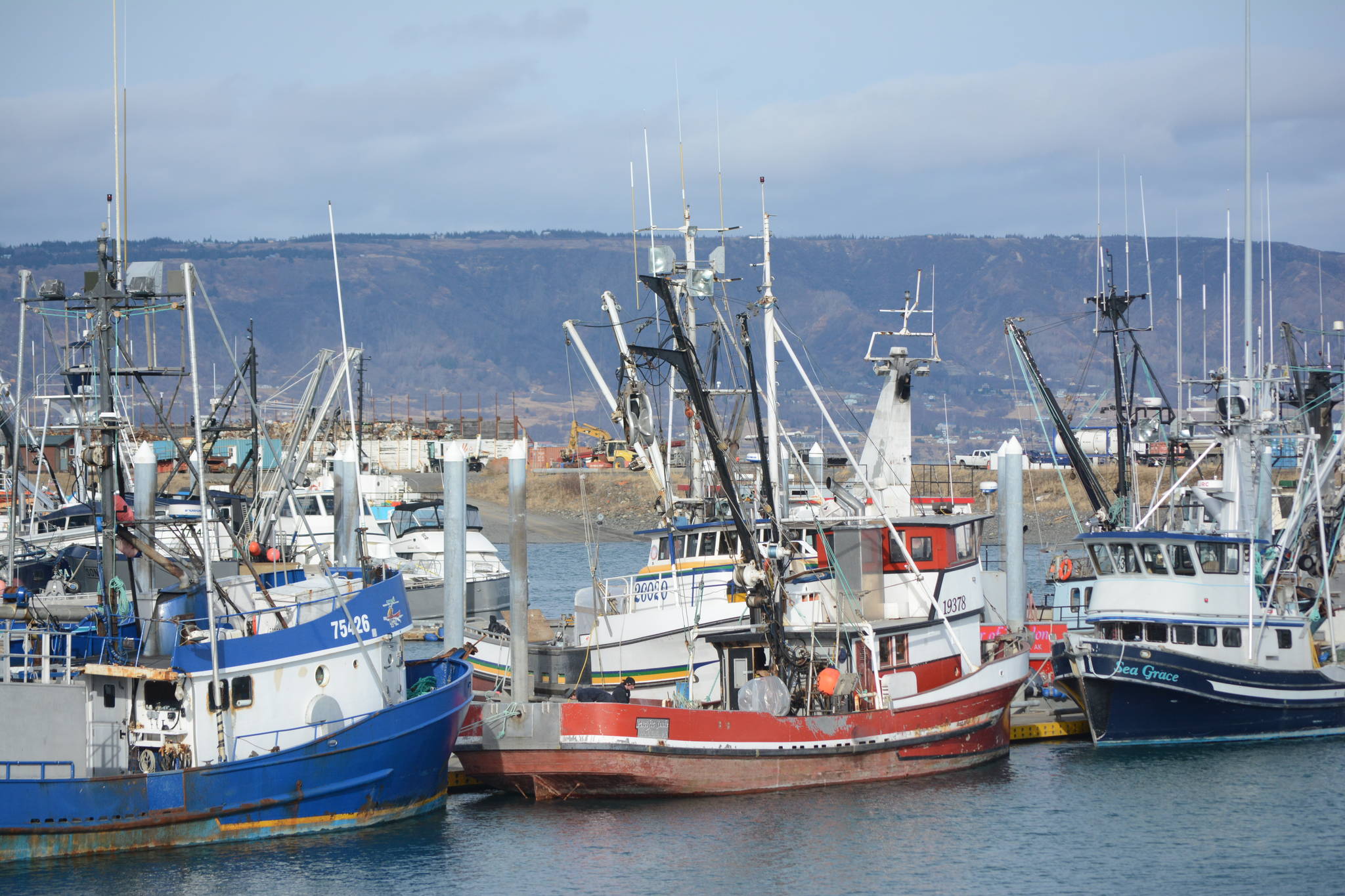In a 30-year-plus tradition, Sen. Dan Sullivan and challenger Dr. Al Gross faced off in a debate on fisheries issues last weekend, sponsored by the Kodiak Chamber of Commerce and KMXT Public Radio. The debate was the first ever held virtually due to the pandemic, and was moderated by veteran journalist Rhonda McBride.
While it was supposed to be dedicated only to fisheries issues, both candidates used some of their time to stray into other areas somewhat related, such as health care, gun rights, military spending and COVID-19 relief payments.
Climate change was also an important topic that led both candidates to declare their concern about the subject.
McBride pointed out that there are “unprecedented changes” to the ecosystem; salmon are getting smaller on average and fish are migrating to areas where they are not historically found, along with crashes of some fish populations and other issues.
Gross said that he would support rejoining the Paris Climate Accord, noting that it is non-binding, and stressed that he does not support the Green New Deal, calling that assertion by Sullivan a lie. He also said renewable energy could bring new jobs to the state.
“I do not support a carbon tax,” Gross said, “I do not support a timetable, but I do support being at the table to bring scientists together to discuss the problem and create … Alaska specific solutions for new jobs.”
Sullivan responded with a statement about Pebble Mine being dead, only tangentially related to climate change but certainly related to fishing, assuring that the decision about Pebble will be based on science, not politics.
He also talked about his role in creating Save Our Seas, a federal initiative focused on reducing marine debris that he said is on the verge of being passed by the House and Senate, but did not lay out a timetable for passage.
“We need to make sure these issues are addressed, but not be used to lock up our fishing opportunities,” Sullivan said.
McBride asked a question about funding for stock assessments.
“The fishing industry has been put on notice that there is a lack of funding to maintain the current stock surveys in the Bering Sea and Gulf of Alaska. These surveys are critical to maintain sustainable fisheries and meet management standards. In addition, many stocks of groundfish and shellfish are moving into new areas of the northern Bering Sea. How will you work with federal agencies to continue to increase funding for stocks moving ahead?” she asked.
During COVID-19, NOAA decided not to do any surveys, something Sullivan called “a huge mistake.”
He added, “We’ve pressed everyone from the head of NOAA to Chris Oliver (assistant director of NOAA Fisheries) that they have to come up with a written policy on the new plan for next year.”
Gross had a similar take.
“Stock surveys are hugely critical” for maintaining maximum sustainable catch, he said, and noted it was not the lack of funding but the pandemic that led to the lack of survey data.
The Magnuson-Stevens Act got some discussion, as it is up for re-authorization.
Gross said that MSA was “woefully inadequate at addressing bycatch in the Gulf of Alaska and the Bering Sea, and over-fishing in other parts of the country.”
Sullivan countered that looking at re-authorization is being looked at, but that fishermen that he has heard from have stressed “first, do no harm.”
He added, “The House has so many radical ideas with regard to our fisheries” with regard to re-authorization without pointing out what those might be.
Activity in the Arctic also got some attention.
Sullivan said he has been pressing NOAA to do regular Bering Sea surveys, because there are opportunities for commercial fishing, along with challenges.
Gross responded that there is no question that the Arctic is the next frontier for Alaska as it thaws, but the U.S. has to be at the table.
“As China declares itself a near-Arctic nation, and Russian activity becomes more and more, we need to ratify the Law Of The Sea Treaty if we’re going to legally stake claims out beyond the continental shelf claims,” and beyond the Exclusive Economic Zone. Gross pointed out that China, Russia, Norway, Iceland, Canada and Finland have all ratified the treaty, which defines the rights and responsibilities of nations with respect to their use of the world’s oceans, establishing guidelines for businesses, the environment, and the management of marine natural resources.
Ratification has stalled due to Republican opposition, in spite of support from military leaders.
Other issues that got attention were the trade war with China and subsequent tariff relief, the Roadless Rule for the Tongass National Forest, among others.
The whole debate can be found at kmxt.org.
Cristy Fry can be reached at realist468@gmail.com



